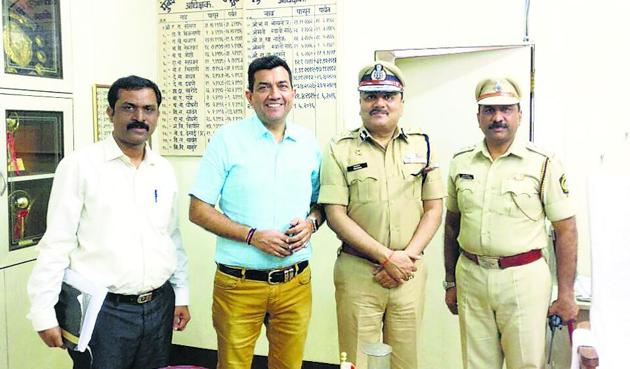Culinary bailout: Sanjeev Kapoor to make Maharashtra prison meals tastier
Kapoor and his team of 10 have been roped in to recommend ways in which the prison kitchens can turn out better food, while staying within the government’s budgets and conventions for feeding inmates
Cold, bland, indifferently prepared meals day after day – prison food is a punishment in itself.

That’s why the idea of a collaboration between the Arthur Road jail and celebrity chef Sanjeev Kapoor to improve the quality and production of meals for inmates comes as appetising news.
“We approached chef Kapoor because we felt the need to improve our cooking style and levels of hygiene,” says Rajvardhan Sinha, Inspector General of Police – Prisons. “We needed expert guidance in understanding how hygiene and food produced in large quantities can go hand-in-hand.”
Kapoor and his team of 10 have been roped in to recommend ways in which the prison kitchens can turn out better food, while staying within the government’s budgets and conventions for feeding inmates.
“Our priority is to improve current processes to serve better tasting and hot food,” says the chef.
“In time, we will also look at mechanising some processes and train inmates to help.”
Some solutions seem simple enough: solar energy for cooking, movable chafing dishes to keep food warm, and borrowing commercial kitchen practices to use resources better when organising meals for a large group. To help, Pune’s Symbiosis School of Culinary Arts has also been approached.
Kapoor’s recommendation on menu changes will be subject to governmental approval. The state’s Home Department guidelines decree that prison meals must adhere to a specific calorie count and meal plans that offer adequate nutrition to inmates. At Arthur Road prison, inmates are currently subject to a fairly static menu. Breakfast is either poha or upma accompanied by 100ml of milk or a cup of tea. Prisoners are allowed 200 grams of food at lunch and another 200 grams at dinner. This constitutes dal, a vegetable preparation that rarely changes, two chapatis and some rice.
But even behind bars, new menus come at a price. “To start off, we’ve suggested that the state’s Home Department offer aid, later the authorities could consider making prison food a part of Indian companies’ corporate social responsibility,” says Kapoor.
READ
Stay updated with all the Breaking News and Latest News from Mumbai. Click here for comprehensive coverage of top Cities including Bengaluru, Delhi, Hyderabad, and more across India along with Stay informed on the latest happenings in World News.
Stay updated with all the Breaking News and Latest News from Mumbai. Click here for comprehensive coverage of top Cities including Bengaluru, Delhi, Hyderabad, and more across India along with Stay informed on the latest happenings in World News.





